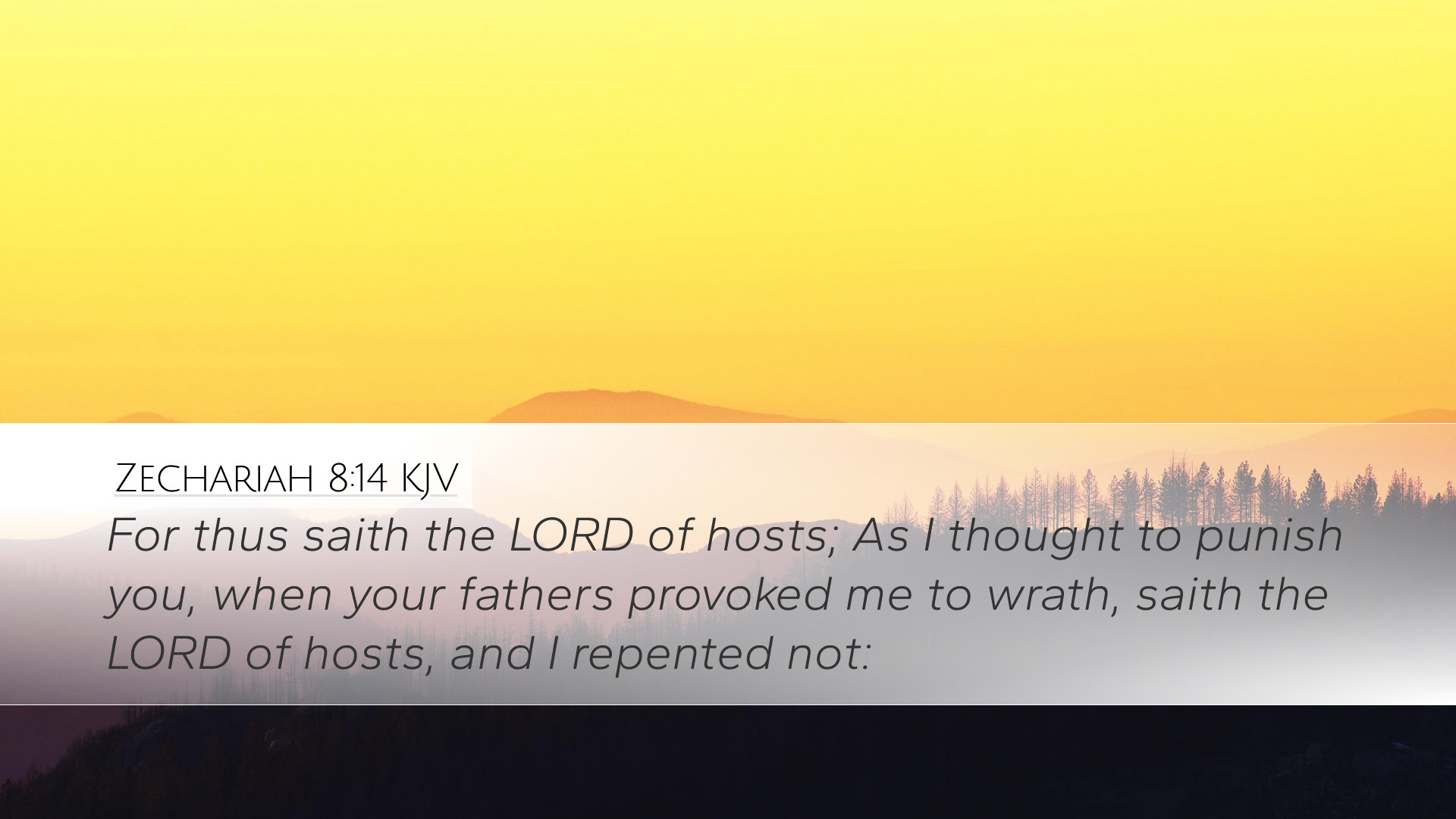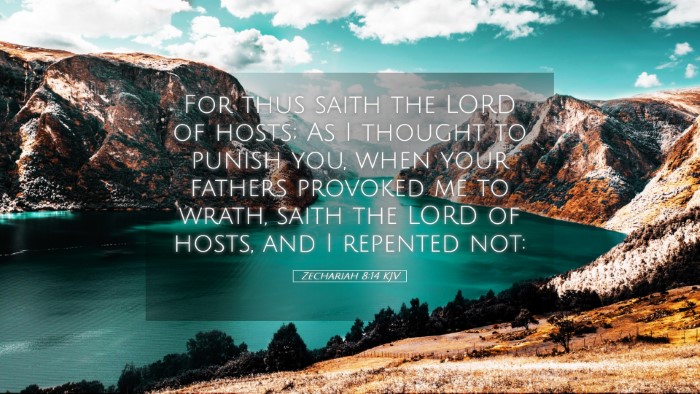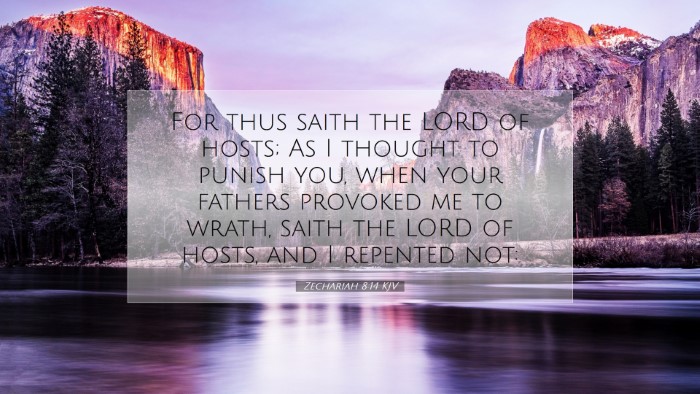Commentary on Zechariah 8:14
Verse Overview: Zechariah 8:14 states, "For thus says the Lord of hosts: As I purposed to punish you when your fathers provoked Me to wrath," Here, Zechariah speaks to the restoration of God’s favor upon His people after periods of divine judgment.
Contextual Background
The book of Zechariah is set during a time of restoration for the Jewish people after their return from Babylonian exile. The prophet Zechariah delivers messages of encouragement and hope, emphasizing God’s continued presence and involvement with His people despite their past disobedience.
Theological Themes
- Covenant Faithfulness: This verse illustrates God’s unchanging nature in His dealings with humanity. It shows that while He punishes for sin, He also restores and blesses when repentance occurs.
- Divine Sovereignty: The verse emphasizes that God's purposes are not thwarted by human actions. His plans involve both judgment and mercy, which demonstrates His sovereignty over history.
- Hope and Restoration: There is a strong theme of hope for the people of Israel; this promise of restoration serves as a reminder of God’s grace and willingness to forgive.
Commentary Insights
Matthew Henry's Commentary
Henry emphasizes the nature of God's punishment as a consequence of Israel's provocation through idolatry and sin. He states that God's purposes may involve corrective punishment but also lead towards restoration. Henry elucidates that just as God was resolute in punishing His people, He is equally determined in His mercy, highlighting the importance of repentance and returning to the Lord.
Albert Barnes' Notes
Barnes draws attention to the parallel between God’s past judgment and His present promises. He notes that understanding God’s past actions is crucial for grasping the fullness of His blessings. According to Barnes, the demarcation of time signifies a transition—from a history of rebellion to a new covenant of peace and security. This suggests a deep theological principle that divine discipline, while painful, is ultimately redemptive.
Adam Clarke's Commentary
Clarke provides insight into the significance of God's chosen people and the covenant relationship established with them. He elaborates that God's punishing of the ancestors is not arbitrary but a response to their willful rebellion. He emphasizes that the verse encapsulates a transition—a moment where divine discipline shifts to restoration and blessing, thus anchoring the faith of the current generation in the unwavering love of God.
Practical Applications
The insights gained from Zechariah 8:14 extend beyond mere historical context; they invite believers to reflect on their own spiritual journeys.
- Understanding Discipline: Just as God disciplined Israel, believers today may find themselves under divine correction. It is important to interpret such experiences as part of God’s loving guidance rather than mere punishment.
- Embracing Restoration: The promise of restoration serves as a powerful reminder that no one is beyond the reach of God’s grace. It instills hope that through repentance, new beginnings can emerge.
- Living in Covenant Relationship: Just as God’s faithfulness to Israel is unwavering, so too should believers uphold their commitment to living in accordance with God’s ways, reflecting on how personal behavior aligns with biblical teachings.
Conclusion
Zechariah 8:14 encapsulates profound truths about God's nature—His holiness as well as His grace. As we explore the depths of this verse, we find a call to repentance, a reminder of God’s longstanding covenant, and the comfort of knowing that His plans encompass both judgment and restoration. For pastors, students, theologians, and scholars alike, this verse serves as a rich source of reflection on the dynamics of grace and discipline in the life of faith.


